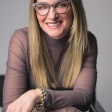Child Development Speakers
You've got a conference slot to fill or a podcast episode to plan, and you know your audience cares about kids, growth, and parenting.
But how do you find a child development speaker who's actually engaging, insightful, and speaks in a way your crowd will relate to?
It's not always clear who's got the right mix of expertise and presence.
That's where this gets easier.
This guide helps you get clear on what child development speakers really bring to the table-from early education experts to parenting strategists and mental health professionals.
Whether your audience is made up of teachers, parents, or anyone curious about how kids grow up in today's world, the right speaker brings real value.
I've seen how the best ones can connect deep knowledge with everyday stories that stick.
Scroll through and find the child development speakers that fit your event.
Or go ahead and book someone who'll bring clarity and energy to your stage or show.
Top Child Development Speakers List for 2026
Dinalynn Rosenbush
Where Speech Therapy Meets Real-Life Parenting
Amber Alton
I create & develop interactive, ready-to-use resources that nurture tiny hands on their journey to becoming confident young scholars.
Rosemary Olender
Inspiring change that makes a difference!
Mark Papadas
The Be Great Guy" bringing personal development to kids. Imagine Tony Robbins meets Charlie Brown!
Adriane Thompson
I help moms parent with Purpose and raise with love ❤
Barbara Mojica
If you don't know your history, you don't know what you're talking about.
Julie Behnken
Guiding parents-to-be and soulful seekers through life’s sacred thresholds
John Allen Wooden
Author of “Screen Time Tales,” a satirical kids book series about screen addiction.
Mindy Green
Real Talk. Real Strategies. Real Parenting—with a Dash of Humor and Heart.
What Makes a Great Child Development Speaker
Take someone like Dr. Laura Jana, a pediatrician and author who speaks globally on child development. She doesn't just talk about brain science-she weaves it into narratives about parenting in the digital age, or how toddlers learn empathy. That's the secret sauce: a great child development speaker makes the science human.
But it's not just about storytelling. The best speakers in this space are also great listeners. They read the room. They adapt their message whether they're speaking to a group of early childhood educators in rural Kenya or a tech-savvy parenting group in Silicon Valley. They know when to go deep and when to keep it light.
And let's not forget credibility. A great child development speaker isn't just charismatic-they're informed. They stay updated on the latest research, trends, and policy shifts. Whether it's the impact of screen time or the role of play in cognitive growth, they bring fresh, evidence-based insights to the table.
In short, a great child development speaker blends expertise with empathy, data with delivery, and theory with real-world application. They don't just speak-they teach, inspire, and challenge us to think differently about how we raise and educate children.
How to Select the Best Child Development Speaker for Your Show
1. Define Your Audience and Goals.
- Are you speaking to parents, educators, policymakers, or entrepreneurs in the edtech space?
- What do you want your audience to walk away with-practical parenting tips, insights into early learning, or policy advocacy?
2. Search Smart Using Speaker Platforms.
- Use platforms like Talks.co to browse speaker profiles. Filter by topic, region, or audience type.
- Look for speakers with videos or past interviews so you can assess their tone and delivery.
3. Check for Relevance and Recency.
- A speaker who was active five years ago might not be up to speed with today's challenges like post-pandemic learning gaps or AI in early education.
- Review their latest content-blogs, podcasts, LinkedIn posts-to see if they're current.
4. Evaluate Communication Style.
- Watch their previous talks. Do they engage with the audience? Are they clear and concise?
- Some speakers are great in person but fall flat on virtual stages. Make sure they're versatile.
5. Ask for References or Testimonials.
- Reach out to past hosts or event organizers. Ask how the speaker handled Q&A, tech issues, or audience interaction.
6. Match Values and Tone.
- If your show is casual and conversational, avoid overly academic speakers unless they can adapt.
- If your brand is data-driven, look for someone who can cite studies without losing the audience.
Selecting the right speaker is part art, part science. But when you find someone who resonates with your audience and delivers value, it's a game-changer for your show's credibility and impact.
How to Book a Child Development Speaker
1. Start with Research.
- Use Talks.co or similar platforms to find vetted child development speakers.
- Browse their speaker pages to check availability, topics, and audience fit.
2. Reach Out with a Clear Ask.
- Send a concise message outlining your show's theme, audience, and what you're looking for.
- Example: "We're hosting a podcast for early childhood educators and would love to feature your insights on play-based learning. Are you open to a 30-minute interview in the next month?"
3. Confirm the Logistics.
- Lock in the date, time zone, and platform (Zoom, Riverside, etc.).
- Share a prep doc with sample questions, your audience profile, and any tech requirements.
4. Promote the Episode Together.
- Ask the speaker if they're open to cross-promotion. Many will share the episode with their networks.
- Provide them with graphics, links, and suggested copy to make it easy.
5. Follow Up Post-Interview.
- Send a thank-you note and the live link once the episode is published.
- Keep the relationship warm for future collaborations or referrals.
Pro tip: If you're using Talks.co, many of these steps are automated. You can message, schedule, and even prep your guest all within the platform. That's how you scale your show without burning out.
Common Questions on Child Development Speakers
What is a child development speaker
These speakers are often featured at conferences, webinars, podcasts, and workshops. Whether they're addressing early childhood educators in a school district or speaking at a global parenting summit, their job is to inform and inspire. They might talk about topics like emotional regulation in toddlers, the impact of trauma on learning, or how to foster creativity in early learners.
Unlike academic researchers who publish in journals, child development speakers bring their knowledge to the public stage. They use stories, visuals, and real-world examples to make their message stick. Some focus on policy, advocating for better early childhood programs. Others lean into practical advice for parents or teachers.
The key is accessibility. A child development speaker doesn't just know the science-they know how to communicate it in a way that resonates with people who may not have a background in child psychology. That's what makes them so valuable in today's fast-changing educational and parenting landscapes.
Why is a child development speaker important
First, they help demystify the science. Most people don't have time to read through dense academic journals on early brain development or attachment theory. A child development speaker distills that information into actionable insights. Whether it's explaining how executive function develops in preschoolers or why unstructured play matters, they make it make sense.
Second, they bring urgency to the conversation. With rising concerns about screen time, mental health, and learning loss, these speakers help audiences understand what's at stake. They don't just share facts-they create awareness that leads to action. Think of how speakers like Dr. Nadine Burke Harris have elevated the conversation around childhood trauma and its long-term effects.
Third, they provide a global and inclusive lens. Great speakers incorporate examples from diverse communities, showing how child development principles apply across cultures and socioeconomic backgrounds. This is especially crucial for educators and policymakers working in multicultural environments.
Finally, they inspire change. Whether it's a teacher rethinking their classroom setup or a parent trying a new bedtime routine, the ripple effect of a compelling speaker can be huge. They don't just inform-they empower. And in a world where early childhood experiences shape everything from academic success to lifelong health, that empowerment matters.
What do child development speakers do
1. Educate Diverse Audiences. They present research-based insights in ways that resonate with parents, teachers, healthcare providers, and policymakers. For example, they might explain how early language exposure affects literacy or how stress impacts a child's ability to learn.
2. Translate Science into Strategy. These speakers take complex developmental theories and turn them into practical advice. A talk on executive function might end with tips for classroom routines or parenting strategies that support self-regulation.
3. Advocate for Systems Change. Many child development speakers are involved in policy advocacy. They speak at government hearings, advise NGOs, or consult with school districts to push for better early childhood programs and equitable access to resources.
4. Inspire and Motivate. Through storytelling and real-world examples, they energize audiences to take action-whether that's a teacher trying a new approach or a parent rethinking screen time habits.
5. Adapt Across Formats. Whether it's a TEDx talk, a podcast interview, a virtual summit, or a live workshop, they tailor their message to fit the format and audience. This flexibility makes them valuable assets for events of all sizes and scopes.
In essence, child development speakers are not just experts-they're facilitators of understanding. They help people see children not just as students or dependents, but as whole humans with unique developmental journeys.
How to become a child development speaker
1. Build Your Expertise
- Start with formal education in child psychology, early childhood education, or developmental science.
- Supplement with certifications or specialized training in areas like autism support, parenting strategies, or trauma-informed care.
- Stay current by reading journals, attending webinars, and following thought leaders.
2. Define Your Niche
- Are you focused on early childhood education? Parenting strategies? Neurodiversity? Pick a lane.
- This helps you tailor your message and attract the right audience - whether it's educators, parents, or healthcare professionals.
3. Craft Your Signature Talk
- Develop a compelling keynote or workshop. Use storytelling, data, and actionable takeaways.
- Test it out at local schools, parenting groups, or online events.
4. Create a Speaker Page
- Use platforms like Talks.co to build a professional speaker profile.
- Include your bio, topics, testimonials, and a short video clip of you speaking.
- Make it easy for event organizers to book you.
5. Network with Hosts and Event Planners
- Reach out to conference organizers, school districts, and podcast hosts.
- Use LinkedIn, Facebook groups, or Talks.co's host-guest matching feature to connect.
6. Get Visible
- Speak at virtual summits, webinars, and podcasts.
- Write guest posts or contribute to parenting blogs.
- Share snippets of your talks on social media to build credibility.
7. Collect Feedback and Refine
- Ask for testimonials and reviews after each event.
- Use feedback to sharpen your message and delivery.
Consistency is key. The more you speak, the more you'll be invited to speak. And with platforms like Talks.co, you can scale your visibility faster than ever.
What do you need to be a child development speaker
Educational Background
Most successful child development speakers have a foundation in psychology, education, or child development. A degree isn't always mandatory, but it adds credibility. Certifications in areas like behavioral therapy, speech-language development, or special education can also boost your authority.
Real-World Experience
Whether you've worked as a teacher, therapist, pediatric nurse, or parenting coach, hands-on experience is gold. It gives you stories, case studies, and insights that make your talks relatable and grounded in reality.
Public Speaking Skills
You need to know how to engage an audience - whether it's a room full of teachers or a virtual summit with thousands of parents. Practice your delivery, learn how to structure a talk, and get comfortable with Q&A sessions. Consider joining Toastmasters or taking a speaker training course.
A Clear Message and Niche
What's your angle? Maybe you specialize in screen-time boundaries, bilingual development, or trauma-informed parenting. The more specific your niche, the easier it is to stand out.
A Platform to Promote Yourself
You'll need a professional speaker page - ideally on a platform like Talks.co - where hosts can see your topics, watch a demo reel, and book you easily. This is your digital business card.
Networking and Outreach
Connect with podcast hosts, summit organizers, and educational institutions. Use platforms like Talks.co to match with hosts looking for speakers in your niche.
In short, being a child development speaker is about combining expertise with communication. If you can educate, inspire, and connect with your audience, you're on the right track.
Do child development speakers get paid
Factors That Influence Payment
- Experience Level: Newer speakers may speak for free or for travel reimbursement, while seasoned experts can command thousands per talk.
- Audience Type: Speaking at a local PTA meeting won't pay the same as keynoting a national education conference.
- Format: Keynotes, workshops, webinars, and panel discussions all come with different pay scales.
- Location: Speakers in North America, Australia, and parts of Europe often see higher rates than in other regions.
Typical Payment Ranges
| Event Type | Typical Fee Range |
|---|---|
| Local School Workshop | $100 - $500 |
| Regional Conference | $500 - $2,000 |
| National Summit Keynote | $2,000 - $10,000+ |
| Online Webinar (1 hour) | $100 - $1,000 |
- Pros:
- Builds authority and visibility.
- Can lead to consulting gigs or product sales.
- Often includes travel and accommodation.
- Cons:
- Not all events pay - especially in the nonprofit or education sectors.
- Requires constant outreach and marketing.
Many speakers use platforms like Talks.co to streamline bookings and get in front of paying hosts. It's not just about the talk - it's about the value you bring to the audience.
How do child development speakers make money
1. Speaking Engagements
- Keynotes at education conferences
- Workshops for teachers, parents, or therapists
- Webinars and virtual summits
2. Online Courses and Digital Products
- Many speakers package their expertise into online courses, parenting guides, or downloadable toolkits.
- Platforms like Teachable or Kajabi make it easy to launch.
3. Consulting and Coaching
- One-on-one coaching for parents or educators
- Consulting for schools, nonprofits, or early childhood centers
- Retainer-based advisory roles
4. Book Sales
- Publishing a book can open doors to higher-paying gigs and media appearances.
- Self-publishing is common, but traditional deals add credibility.
5. Affiliate Income and Sponsorships
- Promoting child development tools, toys, or educational platforms
- Sponsored content on podcasts or social media
6. Hosting Events
- Some speakers flip the script and host their own virtual summits or workshops.
- Using platforms like Talks.co, they can bring in other experts and monetize through ticket sales or sponsorships.
7. Licensing Content
- Licensing training materials to schools or organizations
- Creating curriculum for educational platforms
The key is to think beyond the stage. A single talk can lead to a course sale, a coaching client, or a book deal. Smart speakers build an ecosystem around their message.
How much do child development speakers make
Entry-Level Speakers
- Often earn $0 to $500 per event.
- May speak for free to build credibility and collect testimonials.
- Supplement income with part-time consulting or teaching.
Mid-Level Speakers
- Typically earn $1,000 to $5,000 per talk.
- Often have a book, online course, or podcast.
- Speak at regional or national conferences.
Top-Tier Speakers
- Can earn $10,000 to $25,000+ per keynote.
- Frequently appear on media outlets or TEDx stages.
- Often have multiple income streams (courses, books, consulting).
Annual Income Estimates
| Speaker Level | Annual Income Range |
|---|---|
| Beginner | $5,000 - $25,000 |
| Intermediate | $25,000 - $100,000 |
| Advanced | $100,000 - $500,000+ |
- Frequency of Speaking: More gigs = more income.
- Audience Size: Corporate or national events pay more.
- Geographic Reach: Speakers who work internationally often earn more.
- Platform Leverage: Those using Talks.co or similar tools to streamline bookings often scale faster.
In short, child development speaking can be a side hustle or a six-figure business - it depends on how you build it.
How much do child development speakers cost
Cost Factors
- Experience and Reputation: A local educator with a strong message may charge $500, while a bestselling author or TEDx speaker could command $10,000+.
- Event Type: A one-hour webinar costs less than a full-day workshop or keynote.
- Audience Size: Larger events with more visibility often require higher fees.
- Travel and Accommodation: In-person events may require covering flights, hotels, and per diem.
Typical Cost Ranges
| Speaker Type | Fee Range |
|---|---|
| New/Local Speaker | $200 - $1,000 |
| Mid-Level Professional | $1,000 - $5,000 |
| High-Profile Expert | $5,000 - $20,000+ |
- Virtual events tend to be more affordable.
- In-person events often include additional costs like travel and prep time.
Tips for Budgeting
- Use platforms like Talks.co to find speakers within your budget.
- Consider offering value beyond cash: exposure, media coverage, or product promotion.
- Some speakers offer sliding scale rates for schools or nonprofits.
Ultimately, the cost reflects the speaker's ability to deliver value, engage the audience, and leave a lasting impact.
Who are the best child development speakers ever
- Dr. Maria Montessori: Though not a speaker in the modern sense, her lectures and writings laid the foundation for the Montessori method, influencing generations of educators.
- Dr. Stanley Greenspan: Known for the DIR/Floortime model, his work on emotional development in children with autism remains influential.
- Fred Rogers: While not a traditional speaker, his public talks and media appearances on child psychology and empathy made him a trusted voice for decades.
- Dr. James Comer: His work on child development and school reform through the Yale Child Study Center has shaped policy and practice.
- Dr. Jean Piaget: His lectures on cognitive development set the stage for modern developmental psychology.
- Dr. Laura Markham: Founder of Aha! Parenting, her talks blend neuroscience with practical parenting advice.
- Dr. John Bowlby: The father of attachment theory, his public lectures and writings have had a lasting impact on child psychology.
- Dr. Gabor Maté: Though better known for trauma and addiction, his insights into early childhood development and emotional health are widely respected.
- Dr. Carol Dweck: Her research on growth mindset has transformed how educators and parents approach learning and resilience.
These speakers have shaped how we understand, teach, and care for children across generations and disciplines.
Who are the best child development speakers in the world
- Maggie Dent (Australia): A parenting educator and former teacher, Maggie speaks widely across Australia about resilience and emotional development in children.
- Dr. Shefali Tsabary (USA/India): A clinical psychologist and Oprah-endorsed speaker, she focuses on conscious parenting and emotional intelligence.
- Dr. Laura Jana (USA): A pediatrician and educator who speaks globally on early brain development and health literacy.
- Dr. Deborah Carlisle Solomon (USA): Former director of RIE (Resources for Infant Educarers), she speaks on respectful caregiving and infant development.
- Dr. Tina Payne Bryson (USA): Co-author of 'The Whole-Brain Child', she's a frequent speaker at parenting conferences and schools.
- Dr. Nadine Burke Harris (USA): A pediatrician and former Surgeon General of California, she speaks on childhood trauma and toxic stress.
- Dr. Yong Zhao (China/USA): An education futurist who links child development with global education reform.
- Dr. Alison Gopnik (Canada/USA): A developmental psychologist and philosopher who speaks on the science of learning and caregiving.
- Dr. Daniel Siegel (USA): A neuropsychiatrist whose talks on brain development and parenting have influenced educators worldwide.
These speakers are shaping the global conversation around child development, from neuroscience to education reform to emotional wellbeing.
Common myths about child development speakers
- Myth 1: Child development speakers are just glorified babysitters.
This one's surprisingly common. Some folks assume that if you talk about kids, you must be talking about nap schedules and snack time. But here's the truth: child development speakers often dive deep into neuroscience, psychology, education policy, and social-emotional frameworks. Think of people like Dr. Laura Markham or Dr. Bruce Perry-they're not giving parenting tips over coffee. They're translating complex developmental science into actionable strategies for educators, parents, and policymakers.
- Myth 2: You need a PhD in child psychology to be credible.
While academic credentials can boost credibility, they're not the only path. Many impactful speakers come from backgrounds in education, social work, or even tech and design-especially those working on child-focused platforms or tools. What matters is your insight, clarity, and ability to connect with your audience. For example, Lisa Guernsey, a journalist, became a respected voice in early childhood education through her research and writing.
- Myth 3: Child development speakers only speak to parents.
Not even close. These speakers are booked by school districts, government agencies, edtech startups, nonprofit conferences, and even corporate HR departments looking to support working parents. The audience is broad and growing. If you're thinking of entering this space, don't box yourself in.
- Myth 4: The field is too niche to be profitable.
It might seem that way from the outside, but the demand for credible, engaging voices in child development is rising-especially post-pandemic. Virtual summits, online courses, and hybrid events have opened up new revenue streams. Just look at the success of events like the Early Childhood Education Summit or TEDx talks on childhood trauma.
- Myth 5: You have to be a parent to speak on child development.
This one's tricky. While lived experience can add depth, it's not a requirement. What matters is your ability to synthesize research, communicate clearly, and offer value. Many respected speakers are researchers, educators, or clinicians who don't have children of their own-and their insights are no less powerful.
Case studies of successful child development speakers
Then there's Ron Lieber, a New York Times columnist who pivoted into child development speaking through the lens of finance. His talks help parents teach kids about money, values, and responsibility. He found a unique angle and ran with it-proof that you don't have to follow the traditional path to make an impact.
In rural Kenya, Wanjiru Kamau-Rutenberg took a different route. She focused on early childhood development in underserved communities, combining research with advocacy. Her speaking engagements now include global development forums and UN panels. She's a reminder that child development isn't just a Western conversation-it's a global one.
And don't forget about local heroes. In small-town Canada, a former kindergarten teacher named Melissa Carter started hosting workshops for parents and teachers. She used Facebook Live to grow her audience, then launched a podcast. Within two years, she was speaking at national education conferences. Her story shows how grassroots momentum can scale fast when paired with the right message.
Each of these speakers found their lane. Some leaned into research. Others into storytelling. Some went global. Others stayed local. But they all had one thing in common: they understood their audience and delivered value in a way that stuck.
Future trends for child development speakers
First, let's talk tech. With AI and machine learning creeping into education, child development speakers are being asked to weigh in on digital literacy, screen time, and ethical tech use for kids. Think of speakers like Sonia Livingstone, who's been leading conversations around children's digital rights. Expect more demand for voices who can bridge developmental science with tech policy.
Second, there's a growing appetite for culturally responsive content. Audiences are pushing back against one-size-fits-all parenting advice. They want speakers who understand diverse family structures, neurodiversity, and global perspectives. This opens the door for bilingual speakers, cross-cultural educators, and those with lived experience in marginalized communities.
Third, hybrid and virtual formats are here to stay. That means speakers need to master not just the message, but the medium. Interactive webinars, virtual summits, and on-demand courses are becoming standard. Platforms like Talks.co are making it easier to connect with event organizers worldwide.
Here are a few trends to keep your eye on:
- Micro-niching: Speakers focusing on specific age ranges, like toddler brain development or adolescent identity formation, are gaining traction.
- Data-backed storytelling: Audiences want more than anecdotes. They want evidence. Speakers who can blend research with relatable stories will stand out.
- Collaborative formats: Panels, co-presentations, and fireside chats are replacing solo keynotes in many events.
- Global reach: With translation tools and international platforms, speakers from non-English-speaking countries are gaining visibility.
Bottom line? The future isn't about being louder. It's about being sharper, more relevant, and more connected to what families, educators, and communities actually need.
Tools and resources for aspiring child development speakers
1. Talks.co. This podcast guest matching tool is a goldmine for new speakers. Create a profile, highlight your niche (like early childhood trauma or play-based learning), and get matched with podcast hosts looking for experts. Great for building credibility and SEO.
2. SpeakerHub. A marketplace where you can list your speaking profile, browse events, and connect with organizers. It's especially useful for educators and nonprofit speakers.
3. Canva. Need to design a killer slide deck or social media promo for your next talk? Canva's templates make it easy, even if you're not a designer. Pro tip: use their 'Education' templates to keep your visuals aligned with your topic.
4. Google Scholar. Want to back up your talk with solid research? This is your go-to for finding peer-reviewed studies on everything from attachment theory to executive function in toddlers.
5. Zoom Events. If you're hosting your own workshop or webinar, Zoom Events gives you tools for registration, ticketing, and analytics. It's a step up from basic Zoom meetings.
6. Podia. Thinking about turning your talk into an online course or downloadable resource? Podia lets you create and sell digital products without needing a tech team.
7. LinkedIn Creator Mode. Flip the switch on Creator Mode to showcase your expertise, grow your followers, and get discovered by event organizers. Share short clips from your talks, post insights, and engage with education communities.
8. Notion. Organize your speaking topics, research notes, pitch templates, and event calendar all in one place. It's like a digital brain for your speaking business.
Use these tools not just to look professional-but to actually be more effective. Whether you're pitching your first gig or scaling up to international stages, the right stack can save you time and boost your impact.









